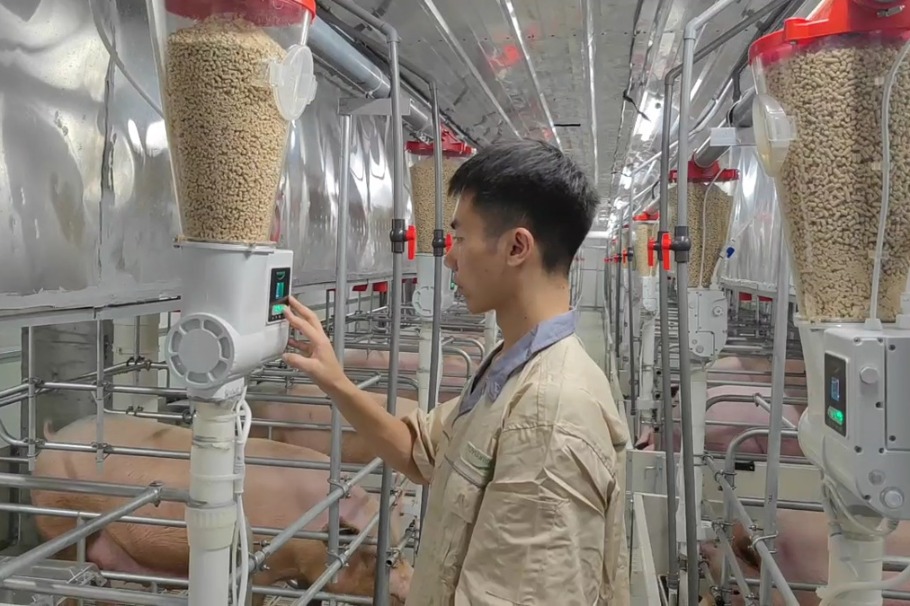Base camp tents boost Tibetans' incomes

Villagers in remote parts of the Tibet autonomous region are finding tourism is an ideal income source thanks to local government efforts to create a world-renowned destination.
At an altitude of 5,200 meters, the air at the base camp of Qomolangma, known as Mount Everest in the West, is chilly, but yak dung burning in stoves ensures it's warm inside the 59 guest tents.
Tibetan farmer Tsering Dorjee, who has been renting out tents for 14 years, is encouraging poverty-stricken families to get involved in the business.
Qomolangma is a tourism hot spot, attracting thousands of visitors and climbers every year, and villagers are eager to offer them services.
"We can't lean on traditional farming and herding in modern times as they cannot fully meet our financial needs," Tsering Dorjee said. "So we've taken the opportunities created by tourism."
The 37-year-old from Ripaley village, Dingri county, said villagers offer tents from April to October, the peak season, when the base camp receives 700 to 1,000 guests a day.
About 15 villages in Tashi Dzong township are engaged in the business. Anyone who puts up a guest tent has to pay the village committee a fee of 60,000 yuan ($8,770), and the money is divided among the villagers at the end of the year.
Four families from Tsering Dorjee's village invested in the camp last year, and each of his roughly 200 fellow villagers received about 1,000 yuan at the end of the year.
Tsering Dorjee said all the camp sites provide services including a canteen, parking and souvenir stores, and each tent has a fair chance of receiving guests every day.
Last year, he earned more than 200,000 yuan from guest tents, which each contain about 10 beds. Most owners earn at least 150,000 yuan a year.
"The price of each bed is 80 yuan a night, and 1,000 yuan for a tent," he said. "Some families are also engaged in the yak transportation business, as they have more yaks."
Tsering Dorjee said most of his fellow villagers are now rich, and most families have cars.
Sonam Drolma, 60, operates a guesthouse in Pasum village, 40 kilometers from the Qomolangma base camp.
"Tourism provides our villagers with a brighter way of seeking income," she said. "My family has bought a car, a tractor and a front-end loader with the money earned by the guesthouse."
She said she mainly worked in the fields in the past, but her son and daughter-in-law now make a better living operating inns.
Another villager, Getan, 23, has designed and produced T-shirts with Tibetan logos.
"I've liked drawing since I was a child, and I want to have T-shirts with Qomolangma spirit that tourists and climbers can take back with them," he said. "Many people like my T-shirts. They say the designs are very attractive and interesting."
Getan's father has plans to expand the family guesthouse business, and Getan wants to upgrade the services.
"My goal is to bring better services to guests from all over the world, and I'm going to work on that next," he said.
- Multiple legal, policy measures take effect in China
- SCIA elevates global reach with launch of new English website
- Legacy of Tea Horse Road lives on in Yunnan village
- Brewing rich legacy of tea culture
- China's unfolding story of innovation, unity and influence
- China, Russia vow to foster cooperation, deepen ties





































